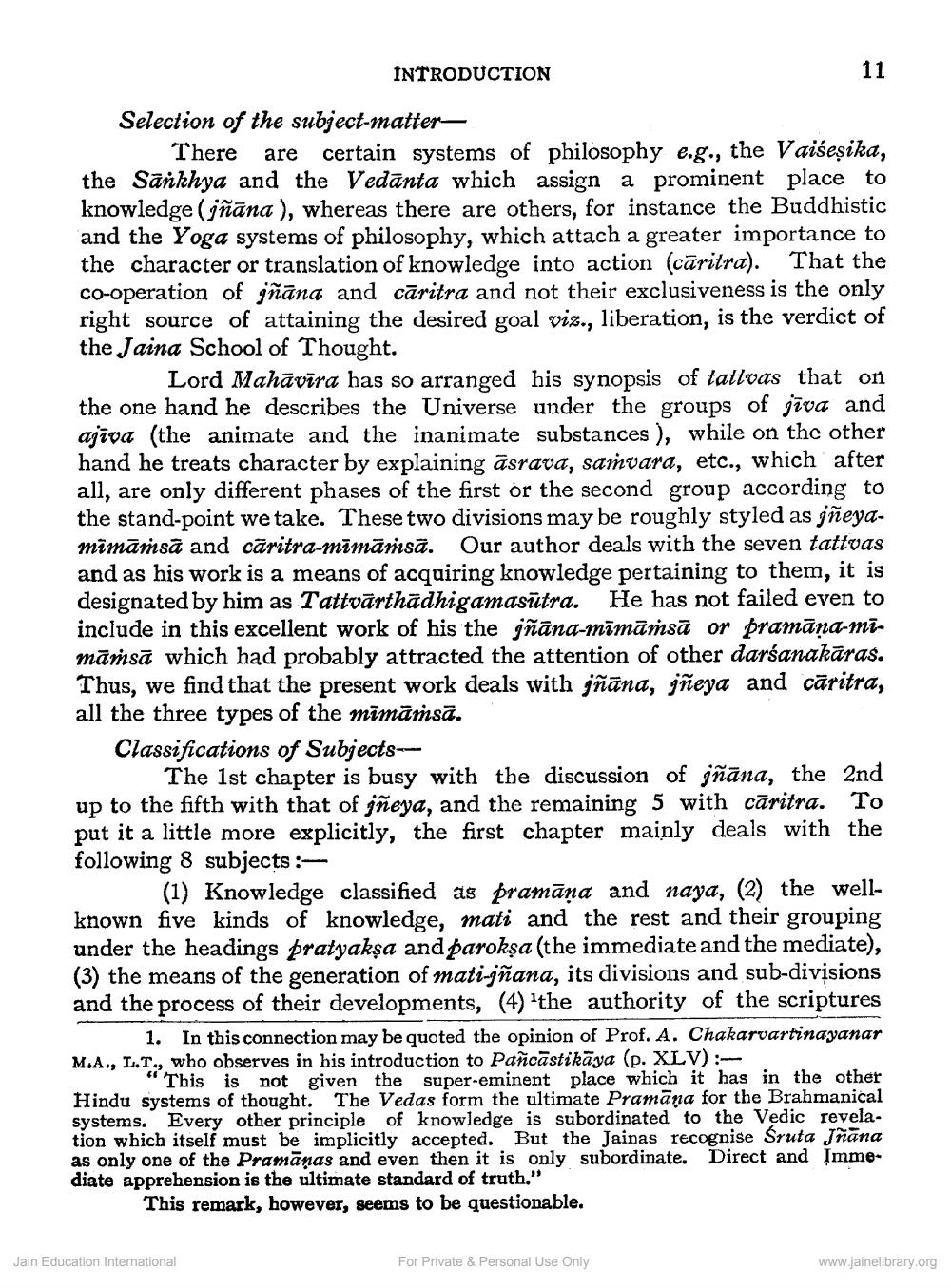________________
INTRODUCTION
11
Selection of the subject-matter
There are certain systems of philosophy e.g., the Vaišeşika, the Sankhya and the Vedānta which assign a prominent place to knowledge (jñāna), whereas there are others, for instance the Buddhistic and the Yoga systems of philosophy, which attach a greater importance to the character or translation of knowledge into action (cāritra). That the co-operation of jñāna and cāritra and not their exclusiveness is the only right source of attaining the desired goal viz., liberation, is the verdict of the Jaina School of Thought.
Lord Mahāvīra has so arranged his synopsis of tattvas that on the one hand he describes the Universe under the groups of jīva and ajīva (the animate and the inanimate substances), while on the other hand he treats character by explaining āsrava, samvara, etc., which after all, are only different phases of the first or the second group according to the stand-point we take. These two divisions may be roughly styled as jñeyamimāṁsā and caritra-mīmārsā. Our author deals with the seven tattvas and as his work is a means of acquiring knowledge pertaining to them, it is designated by him as Tattvārthādhigamasūtra. He has not failed even to include in this excellent work of his the jñāna-mīmāmsā or pramāna-mimāṁsā which had probably attracted the attention of other darśanakāras. Thus, we find that the present work deals with jñāna, jñeya and caritra, all the three types of the mīmāṁsā. Classifications of Subjects
The 1st chapter is busy with the discussion of jñāna, the 2nd up to the fifth with that of jñeya, and the remaining 5 with cāritra. To put it a little more explicitly, the first chapter mainly deals with the following 8 subjects :
(1) Knowledge classified as pramāṇa and naya, (2) the wellknown five kinds of knowledge, mati and the rest and t under the headings pratyaksa and paroksa (the immediate and the mediate), (3) the means of the generation of mati-jñana, its divisions and sub-divisions and the process of their developments, (4) 'the authority of the scriptures
1. In this connection may be quoted the opinion of Prof. A. Chakarvartinayanar M.A., L.T., who observes in his introduction to Pañcāstikāya (p. XLV):
"This is not given the super-eminent place which it has in the other Hindu systems of thought. The Vedas form the ultimate Pramāna for the Brahmanical systems. Every other principle of knowledge is subordinated to the Vedic revelation which itself must be implicitly accepted. But the Jainas recognise Sruta Jnana as only one of the Pramānas and even then it is only subordinate. Direct and Immediate apprehension is the ultimate standard of truth."
This remark, however, seems to be questionable.
Jain Education International
For Private & Personal Use Only
www.jainelibrary.org




